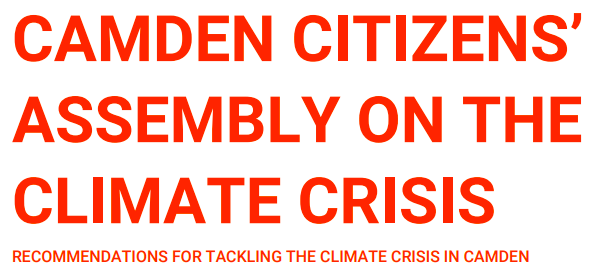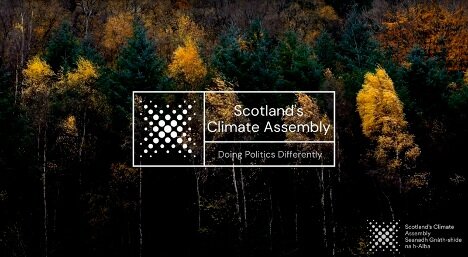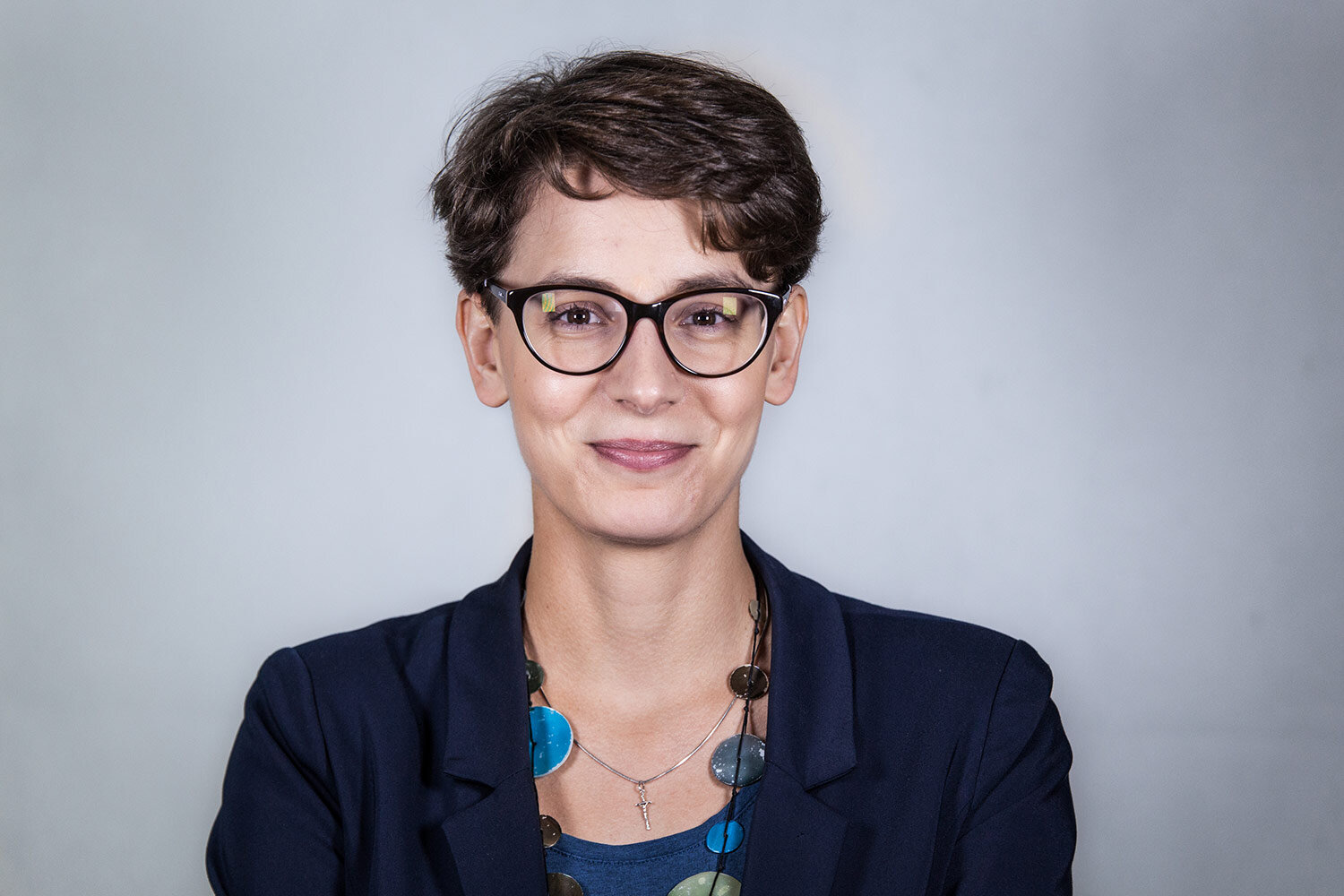Organizers Won Climate Assemblies in Poland, the United Kingdom, and France. Here's How.
/Climate assemblies (CAs) provide a space for community members to learn how climate change impacts their community or country, and then develop and propose concrete actions for the government to take. People Powered developed an online course to help advocates and practitioners learn from the experiences of local and national CAs in Poland, France, and the United Kingdom.
We’re excited to share below some of the key insights from the course to help you advocate for, design, and start a climate assembly in your city or country. Learn more in our online course and info sheet. After taking the course, you can sign up for free mentorship from climate assembly experts!
A climate assembly (CA) brings together a randomly selected group of people to make policy recommendations to address climate change.
Typically, a local, national or regional government convenes the assembly and people are selected to form a “minipublic” that broadly represents the general population. The members learn about issues, hearing evidence and testimony from contributors such as climate scientists, industry advocates, and civil society. They then deliberate and agree on a set of recommendations which are presented to the commissioning organization, usually a government or parliament.
Since many climate assemblies have only recently been implemented (or are in process), it will take time to fully understand their policy, political, and environmental impacts. When designed and used well, CAs can deliver big benefits, including overcoming partisan divides that are preventing action, inspiring new ideas and commitments to ambitious action, and empowering individual participants with increased knowledge, changed behavior, and a sense of connection with their community and political decision-making.
To decide whether to advocate for and start a local or national assembly, you can think about levers and levels of change.
Where is power held? Do participants know? Since different levels of government control different levers of power, one level may be better equipped to address certain issues than others. Scotland, for example, has devolved powers from the United Kingdom government, so the Climate Assembly UK could not address the same issues as Scotland’s Climate Assembly.
The Camden Citizens’ Assembly on the Climate Crisis in July 2019 was the first local CA organized in the United Kingdom. A group of over 50 residents met three times in July 2019. They agreed on 17 recommendations for residents, community groups, businesses, and the local council to limit the impact of climate change. You can learn more about Camden’s experience with this short video.
You need a diverse team of advocates and a range of tactics to win government approval for a CA.
Climate & environmental organizations, community organizations, government champions, and climate scientists can use petitions, protests, expert endorsements, and meetings to build support and create political pressure.
In the case of the Warsaw Climate Panel, the advocacy campaign began online, sharing the idea on Facebook and other forums. Grassroots movements (Extinction Rebellion, Youth Climate Movement, and Earth Strike) came together with NGOs focused on democracy, cities, and the environment to act as the CA’s “initiators.” They collected signatures for a petition, which was given to the mayor in a public event. The initiators then met with city officials to discuss the CA and choose a topic: energy efficiency and renewable energy. The advocacy process may take longer than expected: in Warsaw, the CA took place in November 2020, over 1.5 years after the advocacy campaign began.
You’ll need to prepare for how the CA will fit into your local or national legal and policy framework.
You should check, for example, whether there are public consultation rules that make citizens’ assemblies possible. You should also make sure ahead of time that there is a budget for it, since public budgets are usually created a year in advance. The Warsaw Climate Panel cost approximately $50,000, which had to be planned in advance. The decision-making power of the CA — whether recommendations are binding — also needs to be regulated. In addition, you’ll need to ensure that the CA meets the standards for citizens’ assemblies.
Think carefully about the CA’s framing question. This question determines how ambitious the recommendations will be, which level of government will be responsible, and which areas of work will be impacted. The question can also help center inclusion and equity in the CA’s work, by calling for a focus on fairness or justice. (You can read more about framing questions on the course info sheet.)
Professional facilitators and carefully selected participatory online platforms are crucial to create an inclusive space for all CA members.
In an assembly process, you expect a diverse group of people. Set ground rules so that everyone understands the tone of conversations and feels comfortable participating in that space. In addition, remember that there is a community outside of the assembly. To highlight the voices of community members with lived experience relevant to the CA’s topics, you can invite them to present to the CA.
The support that you give people to participate in the assembly is also vital — a gift or stipend so that people can give up a day’s or a few days' work, which might not be financially feasible. You might need to provide child care, and access to an electronic device or data if you’re doing it online. Make sure members have a clear point of contact to raise concerns.
Technology can be used at all stages of a CA, including random selection software to choose the members, and participatory platforms to collect ideas from the public and organizations. The Citizens' Convention on Climate in France used Decidim and Iramuteq, open-source platforms, to collect and process public input. To ensure that marginalized groups are included, it’s important to plan an inclusive outreach strategy: partner with public schools and public libraries, and use communication methods that are more familiar to the targeted communities.
CAs can take place in a variety of political and geographic contexts.
Membership of an assembly will be diverse, and if you include attitudes to climate change in your selection process, it will include progressives, conservatives, climate change skeptics and deniers — who can still join in and make contributions! You should do some stakeholder mapping to understand who needs to be involved or informed. Pin down some key talking points for when you approach them — you may find different messages will resonate with different people.
In addition, CAs have mainly taken place in the Global North, but other deliberative processes like deliberative polls have been carried out in the Global South, in countries like Brazil, Argentina, and Mongolia. Places that already have strong political will for climate action could be a good place to start a CA. For example, climate emergency has been declared in Bangladesh, Bogotá (Colombia), and three cities in the Philippines.
Next Steps
Determine which scale is right: Weigh the pros and cons of local and national CAs in the context of your city and country.
Contact potential partners to form an advocacy team: climate organizations, community groups, government champions, and support organizations.
Answer key planning and design questions: What problem do you want to solve? What will be the framing question of the CA? How will you incorporate fairness and equity in the framing question?
Identify technical needs and partners: Meet with climate scientists who can help identify experts and stakeholders to provide testimony.
For a more detailed checklist, check out the course info sheet.
Learn More and Get Help
Want to learn more about how to advocate for and start a climate assembly in your city or country?
Watch our 90-minute online course (available in four languages).
Download the 4-page info sheet (in six languages).
Complete the course evaluation, and then sign up for our mentorship program to address specific challenges for advocating for and starting a climate assembly.
Course Speakers: Kelly McBride, Democratic Society (lead instructor) (Scotland); Mateusz Wojcieszak, Field of Dialogue Foundation (Poland); Katarzyna Pawłowska, Shipyard Foundation (Poland); Eloïse Gabadou, Open Source Politics (France); Julia Kozakiewicz, Client Earth (Poland)
Thank you to our partners: Democratic Society, Open Source Politics, Shipyard Foundation, Field of Dialogue Foundation, ClientEarth, World Resources Institute, and the International Observatory on Participatory Democracy.














